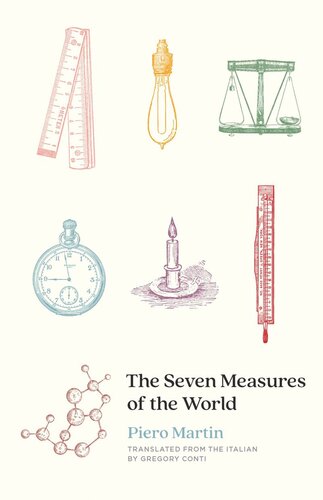

Most ebook files are in PDF format, so you can easily read them using various software such as Foxit Reader or directly on the Google Chrome browser.
Some ebook files are released by publishers in other formats such as .awz, .mobi, .epub, .fb2, etc. You may need to install specific software to read these formats on mobile/PC, such as Calibre.
Please read the tutorial at this link: https://ebookbell.com/faq
We offer FREE conversion to the popular formats you request; however, this may take some time. Therefore, right after payment, please email us, and we will try to provide the service as quickly as possible.
For some exceptional file formats or broken links (if any), please refrain from opening any disputes. Instead, email us first, and we will try to assist within a maximum of 6 hours.
EbookBell Team

4.0
26 reviewsThe fascinating stories behind the essential seven units of measurement that allow us to understand the physical world
From the beginning of history, measurement has been interwoven into the human experience, shaping our understanding of nature, personal relationships, and the supernatural. We measure the world to know our past, comprehend the present, and plan the future.
Renowned physicist Piero Martin explores how scientific knowledge is built around seven key pillars of measurement: the meter for length; the second for time; the kilogram for mass; the kelvin for temperature; the ampere for electricity; the mole for quantity of substance; and the candela for luminous intensity. Martin examines the history and function of these units and illustrates their applications in rich vignettes on topics ranging from quarks and black holes to coffee and beer. He delves into not only the all-important numbers but also anecdotes that underline each unit’s special quality. At the same time, he explains how each unit contributes to important aspects of science, from classical physics to quantum mechanics, from relativity to chemistry, from cosmology to elementary particle physics, and from medicine to modern technology. Martin eloquently shows how the entire universe can be measured and understood using just a few units.